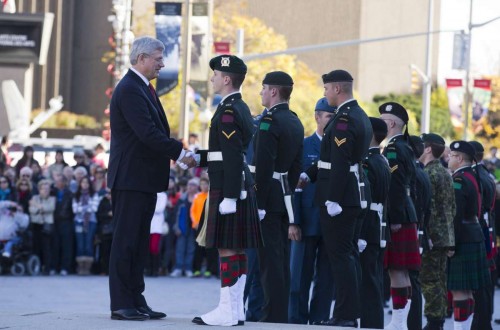Dalai Lama meets Canadian MPs, discusses Tibet

Tibetan spiritual leader the Dalai Lama met 10 members of the Canadian parliament and discussed the issue of Tibet, a statement said Saturday.
“They (the MPs) briefed His Holiness about their recent activities, including developments in the process of resettling 1,000 Tibetans from Arunachal Pradesh in Canada, of whom 220 have already arrived,” a statement on the Dalai Lama’s website said.
It said the Dalai Lama thanked them for their support, reminding them of the wider ramifications of the Tibet issue.
Among them who called on the spiritual leader in Vancouver Friday were Minister for Employment, Social Development and Multiculturalism Jason Kenney, Minister for National Revenue Kerry-Lynn Findlay and Bernard Trottier, chairman of Parliamentary Friends of Tibet.
Trottier was quoted as saying that Prime Minister Stephen Harper’s absence from the meeting with the Dalai Lama does not mean Canada is joining other global leaders in snubbing the Nobel Peace Prize laureate.
“We (Conservative MPs in the delegation) are there with his (Harper’s) blessings, he’s well aware that we’re doing this,” Trottier told The Vancouver Sun. “But then again it’s not a government initiative, it’s a parliamentary initiative,” he said.
Stephen Lecce, spokesman for the prime minister, said Harper has met with the Dalai Lama in 2007 and 2012. Trottier noted that no other Canadian leader invited the Dalai Lama to the prime minister’s office, as Harper did in both the meetings.
“While the prime minister has had the opportunity to meet the Dalai Lama over the past years, he has no plans to meet him this week,” The Vancouver Sun said quoting Lecce.
Trottier said China’s aggressive pressuring of western governments to avoid the Dalai Lama has not influenced the Canadian government’s views on how China treats Tibetans.
“Our position as parliamentarians and as a government is that they should have the right to exercise their religious freedom,” he said.
“We’re not advocating independence, we’re saying there should be some form of autonomy within Tibet so its unique culture and religious freedoms can be exercised.”
The Dalai Lama has lived in India since fleeing his homeland in 1959. The Tibetan exile administration is based in Dharamsala town.
The Tibetan spiritual leader, who in 1989 was given the Nobel Peace Prize for his non-violent struggle for Tibet, believes in the “middle-path” policy that demands “greater autonomy” for the Tibetans.
He is viewed by the Chinese as a hostile element bent on splitting Tibet from China.